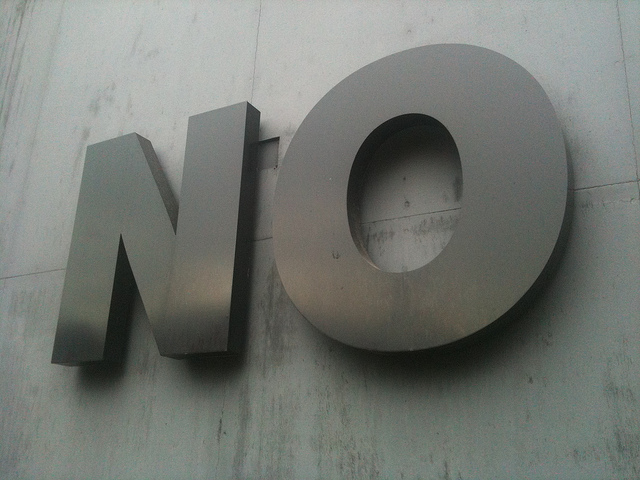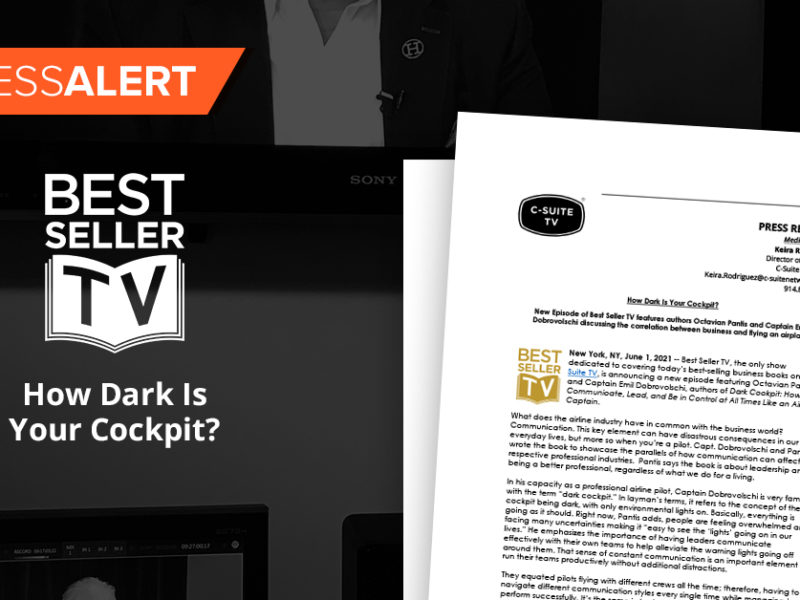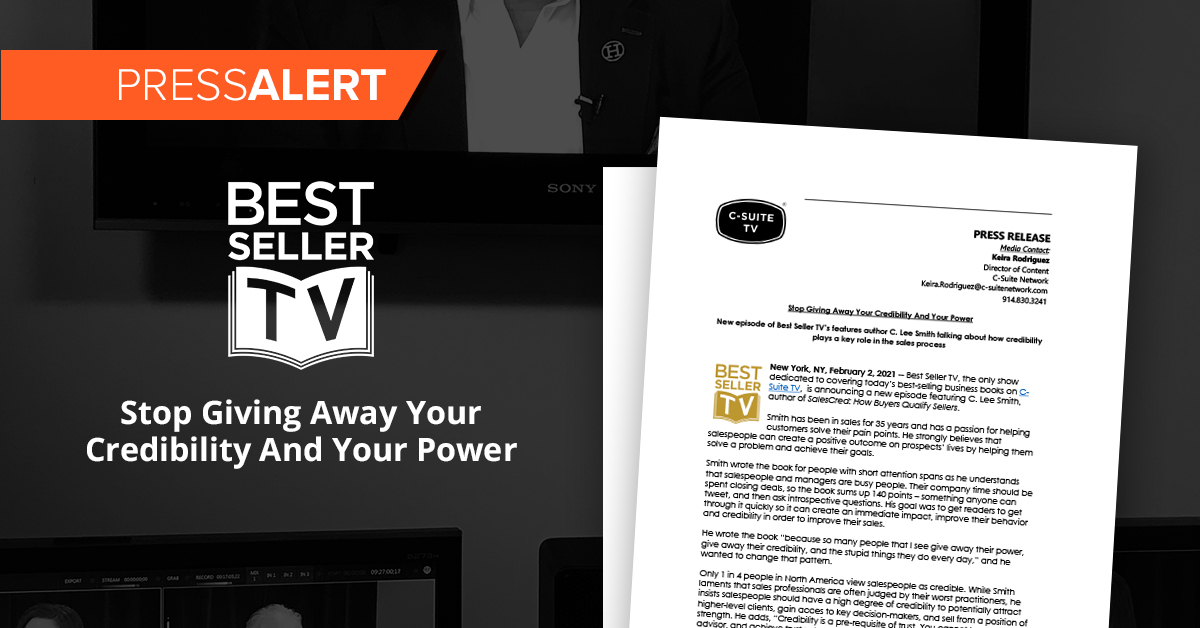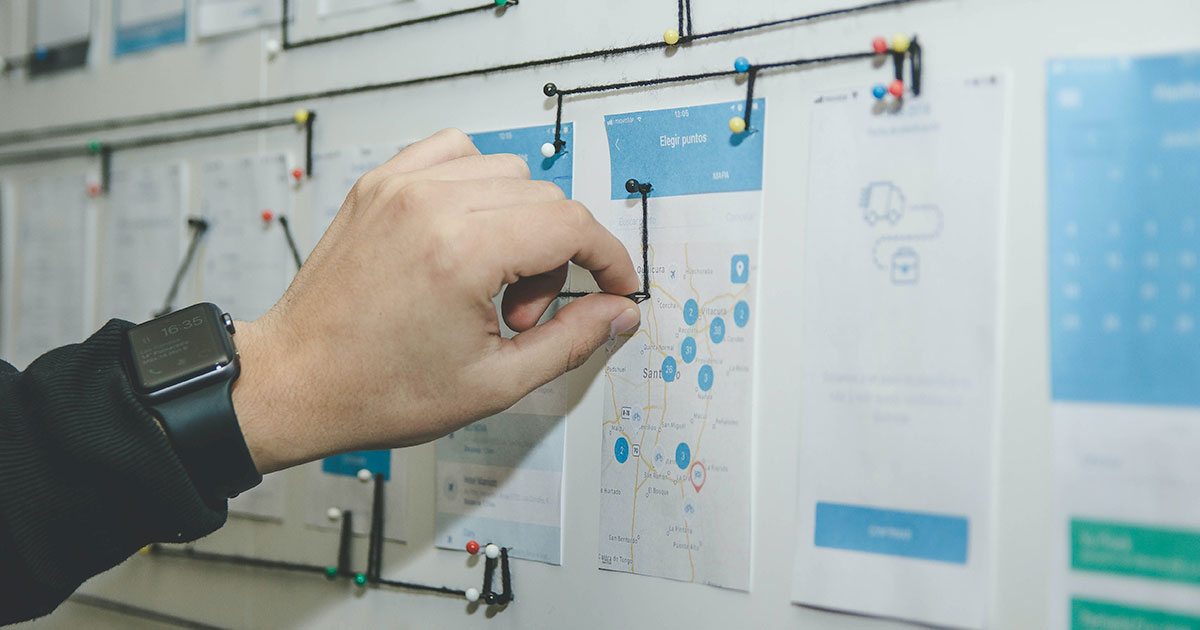
We Need More Nos
We Need More Nos https://csuiteold.c-suitenetwork.com/wp-content/uploads/2015/05/5764026117_acbccfa5ea_z.jpg 640 480 C-Suite Network https://csuiteold.c-suitenetwork.com/wp-content/uploads/2015/05/5764026117_acbccfa5ea_z.jpgby Tom Asacker
Last week, dozens of newsletter readers unsubscribed. I have an idea why, but it still stung.
I’m wired to feel that way (so are you). But then I remembered something. Ironically, it was something that I said years ago. Following a speech and during Q&A with a room full of CEOs.
This was the question, as best as I can remember: “What’s the one piece of advice you’d give us to help increase sales productivity?”
All eyes were on me (I felt like I was being baited).
“That’s an easy one,” I replied.
“The next time one of your salespeople feels a prospect may not be interested, have him or her say this.”
“Mr. Prospect. I may be way off base, but I get the feeling that we’re not going to be doing business together.”
The questioner looked confused. So did everyone else in the room.
“And what if the prospect replies, ‘You’re right. We’re not going to be doing business together?’”
“That’s great!” I said.
“Now your salesperson can get on with doing the real work of finding and helping interested people.”
I still sensed skepticism.
“Look, there will be two, and only two, possible reactions to that very honest and direct approach,” I said. “And both are extremely helpful.”
Here’s the first: “You’re feelings are wrong. I’m definitely interested. That’s good, because now your salesperson can probe to find out what’s holding that individual back. And the other response is just as good.”
“Yeah, you’re feelings are right. We won’t be doing business together, because . . .”
“And that’s good too!”
“Because now your salesperson can stop bringing that person donuts every week.”
Suddenly, everyone in the room lit up and started writing. It’s so simple. We hate the word “no.” We avoid it like writers avoid clichés.
“No” feels like rejection (it’s not). And so we gravitate towards “maybe.” Maybe validates us. Maybe gives us hope. We’re living in a world of maybe. But maybe is dangerous. Because maybe feels good. Maybe appeases us. Maybe keeps us on the same path — a path that goes ’round in circles.
It’s time to put on the brakes. If you feel it, say it. Straighten yourself out. What’s the worst that can happen? Certainly not “no.” No is valuable information. No is a kick in the pants.
No gets us moving in a different direction. No helps save our most precious resource. For as Buddha’s teachings made clear, our real problem is this. We think we have time. We don’t. And that’s why we need more nos.

 Tom Asacker is a writer, teacher and innovator. He specializes in helping people see the world and their work differently. He has been teaching and inspiring organizations and entrepreneurs for over 20 years with his unique educational offerings and his one-of-a-kind keynote presentations. Follow him on Twitter @
Tom Asacker is a writer, teacher and innovator. He specializes in helping people see the world and their work differently. He has been teaching and inspiring organizations and entrepreneurs for over 20 years with his unique educational offerings and his one-of-a-kind keynote presentations. Follow him on Twitter @


